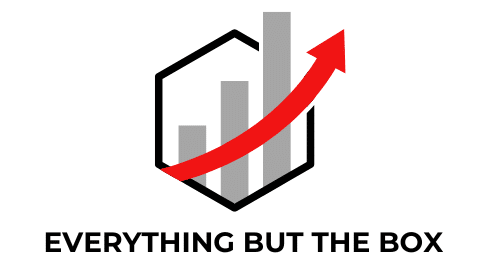What Are the Best Techniques for Reducing Stress in Healthcare Workers?

In the world of healthcare, stress is a constant companion. Nurses, doctors, and other healthcare providers constantly deal with high-stakes situations, long hours, and the emotional toll of caring for sick and suffering patients. The high level of stress can lead to burnout, anxiety, and other negative mental health outcomes. In this article, we will delve deep into the numerous strategies and interventions available to help mitigate stress among healthcare workers.
Recognizing and Understanding Stress
Before we delve into stress management techniques, it’s essential to understand what stress is and how to recognize it. Stress is your body’s response to pressure or threats in your environment. It can manifest as physical symptoms like headaches, stomach problems, high blood pressure, chest pain, and problems with sleep. Mental symptoms may include feeling overwhelmed, irritable, insecure, or lacking in self-esteem.
Have you seen this : What Are the Most Effective Ways to Manage Seasonal Affective Disorder?
It’s crucial for healthcare workers to acknowledge stress and its potential impact on their well-being and patient care. Stress can impede concentration, leading to mistakes and accidents. It can also contribute to mental health problems like burnout and depression. Studies have shown that stress levels among healthcare workers, particularly nurses, have spiked during the Covid-19 pandemic, highlighting the urgent need for effective stress management strategies.
Strategies for Individual Stress Management
Now that we have established an understanding of stress, let’s explore some techniques for individual stress management that healthcare workers can use.
This might interest you : How Can Acupuncture Help in Relieving Chronic Migraine Headaches?
Exercise and Physical Activity
Physical activity is a potent stress reliever. It stimulates the production of endorphins, the body’s natural mood lifters. Moreover, exercise can also improve sleep, increase self-confidence, and help you feel more relaxed. Regular physical activity, be it a brisk walk, yoga, or a workout at the gym, can be a fantastic way to reduce stress.
Mindfulness and Meditation
Mindfulness and meditation are proven methods for reducing stress and anxiety. These practices involve focusing your attention and eliminating the stream of jumbled thoughts that may be crowding your mind and causing stress. Research has shown that mindfulness can change the way your body responds to stress, leading to decreased anxiety and greater resilience to stress.
Balanced Diet
What you eat can significantly impact how you feel. Consuming a healthy, balanced diet helps your body better cope with stress. Eating a diet rich in fruits, vegetables, lean proteins, and whole grains helps keep your immune system strong and your mind sharp, which is crucial for dealing with stress in high-pressure healthcare settings.
Organizational Interventions
While individual efforts are crucial, healthcare organizations must also play their part in support of stress management. Institutional policies and interventions can significantly contribute to reducing stress among healthcare workers.
Adequate Staffing
Staffing levels can significantly affect stress levels among healthcare workers. Understaffed facilities can lead to increased workloads, longer hours, and more patient deaths. Ensuring adequate staffing levels can alleviate this stress and improve patient care.
Mental Health Support
Healthcare organizations should provide mental health support for their workers. This could be in the form of counseling services, employee assistance programs, or stress management workshops. Providing a safe space for healthcare workers to share their experiences and emotions can significantly reduce stress and prevent burnout.
Work-Life Balance
Another organizational approach to reducing stress is promoting a healthy work-life balance. This could involve flexible scheduling, encouraging breaks, and promoting time off for relaxation and rejuvenation.
The Role of Peer Support
Peer support can be a vital tool in managing stress among healthcare workers. Colleagues understand the unique challenges and pressures of the job. They can provide emotional support, share coping strategies, and help each other navigate difficult situations.
Peer Support Networks
Creating formal or informal peer support networks within the healthcare setting provides an opportunity for healthcare workers to share experiences, learn from each other, and feel more connected. These networks can help reduce feelings of isolation and increase resilience to stress.
Buddy Systems
Implementing a buddy system, where healthcare workers pair up and check on each other regularly, can be another effective strategy. This approach promotes a sense of camaraderie and provides a built-in support system for dealing with work-related stress.
In conclusion, stress in healthcare is a substantial issue that needs ongoing attention. With the right strategies, healthcare workers can manage stress effectively, improving their well-being and the quality of care they provide to patients. Remember, it’s not just about surviving; it’s about thriving in the challenging world of healthcare.
Enhancing Communication Skills for Stress Reduction
As a healthcare worker, communication plays an integral role in your daily routine. Effective communication can reduce misunderstandings, enhance team coordination, and improve patient outcomes. However, poor communication can lead to conflicts, decreased job satisfaction, and increased stress levels.
Healthcare workers must communicate complex information clearly and understandably to patients who might not have medical knowledge. They also need to communicate effectively with their colleagues, often under high-pressure situations. Therefore, improving communication skills should be an integral part of stress management strategies for healthcare workers.
One effective approach is the adoption of assertive communication. Assertive communication is a way of expressing needs and wants clearly and directly, while respecting the rights and beliefs of others. It helps ensure that everyone’s views and desires are considered, thereby reducing potential conflicts and associated stress.
Healthcare organizations can also help by offering communication skills training to their staff. Such training can help individuals understand communication styles, improve listening skills, and learn techniques to handle difficult conversations. This will not only improve overall communication within the team but also help reduce work stress.
Moreover, fostering an environment where open and honest communication is encouraged can lead to improved team dynamics. When healthcare workers feel heard and valued, it can contribute to reduced stress and increased job satisfaction.
Utilizing Technology for Stress Management
In the era of digital healthcare, technology can play a pivotal role in stress management for healthcare workers. From telemedicine to mobile applications, technology can provide effective ways to manage work stress and enhance mental health.
Telemedicine, which has gained prominence during the Covid pandemic, can reduce the stress associated with long working hours and high patient loads. By allowing healthcare workers to consult with patients remotely, it provides flexibility and reduces the physical and mental exhaustion associated with traditional care practices.
Mobile applications and online platforms offer a myriad of resources for stress management. For instance, apps that promote mindfulness and relaxation techniques can be a practical tool for healthcare workers to manage stress in real-time. Additionally, online platforms can provide access to mental health professionals, facilitating timely therapeutic interventions.
Digital health records can streamline paperwork and reduce the time spent on administrative tasks, a common source of stress. Implementing an efficient electronic health record system can contribute to a smoother workflow, allowing healthcare staff more time for patient care and self-care.
It is essential to remember that while technology offers many benefits, it should be used thoughtfully. Inappropriate use can lead to additional stressors, such as digital overload and privacy concerns.
Conclusion
In conclusion, stress management in healthcare involves a multi-faceted approach, incorporating individual and organizational level interventions. From recognizing stress symptoms and promoting self-care practices at the individual level, to implementing supportive policies and promoting communication at the organizational level, every strategy plays a crucial role in stress reduction.
The role of peer support and the use of technology are also key in managing stress among healthcare workers. As the healthcare landscape continues to evolve, especially in the aftermath of the Covid pandemic, it’s important to continually assess and adapt these strategies, taking into account the changing dynamics and unique needs of healthcare workers.
While stress in healthcare may be inevitable, it is manageable. Healthcare workers possess the resilience and strength to navigate through these challenges. With the right support and effective stress management strategies, they can not only survive but thrive, providing the best possible care for their patients. Remember, managing stress is not just about surviving the rigors of healthcare, but about thriving amidst them.
